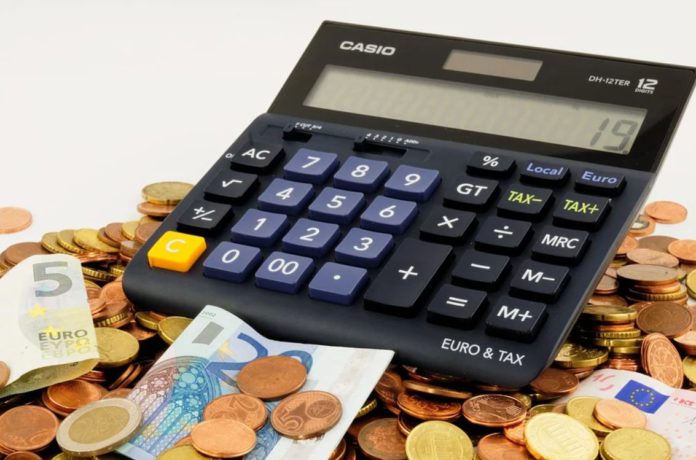Minister Donohoe and Minister McGrath announced details of Budget 2022 on Tuesday, October 12th, 2021.
Some key points announced:
- Total budgetary package of €4.7 billion;
- Expenditure measures worth €4.2bn and tax measures worth €05.bn
- The unemployment rate at the end of 2021 is forecast to be over 9%;
- More than 400,000 jobs to be added to the Irish economy between 2021-2022;
- The government forecasts national debt to be just under €240bn next year;
- Modified Domestic demand is expected to grow. According to the government, 5.25% and next year by 6.5%;
- Public spending next year to reach €87.6bn;
- Core current expenditure to grow by 4.6% in line with Ireland’s trend growth of economy;
- Debt to fall from 106% to 99% next year, reaching 89.5% in 2025;
- Forecast of the combined deficit has been revised: Reduced by 40% to €34.5bn;
- Government to create €4b contingency fund;
- By 2023, the only borrowing will be for capital spending;
- Core expenditure will grow by 4.6%;
- EWSS (Employment Wage Subsidy Scheme) to remain in place in graduated form until April 30th, 2022;
- Phase-out temporary Covid-19 spending.
- Remote working: Income tax reduction of 30% of the cost of vouched expenses (heat, electricity and broadband) for remote workers;
- National minimum wage increasing by €0.30 to €10.50/hour;
- Increase the standard rate band by €1,500;
- Second USC rate band to increase from €20,687 to €21,295;
- Retaining the exemption from the top rate of USC for all medical cardholders and those over 70 earning less than €60,000;
- Increase each of the personal tax credit, employee tax credit and shared income credit by €50;
- Income tax package of almost €520m;
- Revised VRT table from January 2022;
- Increasing excise duty on pack of 20 cigarettes by 50c to “support public health policy”. Pro-rata increase on other tobacco products;
- €30m for protection and renewal of roads;
- €30m for Department of Health;
- €6b in Exchequer funding to the Department of Housing, Local Government and Heritage;
- By 2025: 9,500 new build social homes;
- €174m in Exchequer funding to support the direct delivery of over 4,00 affordable homes next year;
- €1.6bn for water services next year;
- €1b for Covid 19-related health measures: PPE, booster vaccines and testing;
- Corporate tax rate to remain at 12.5% for businesses for turnover less than €750m;
- Health spending up to €20.38bn
- Lowering Drug Payment Scheme threshold to €100;
- Extension of free GP care to children aged 6-7;
- €31m women’s health package: Access to free contraception for women aged 17-25 from August;
- Additional €37m for expanding mental health services;
- Additional €105m for disability services;
- 7,000 new posts across health system;
- Bring ICU capacity to 340;
- €250m to address waiting lists;
- €105m for extra 19 critical care beds;
- Additional €105m for disability services;
- €716m in childcare;
- Extend the National Childcare Scheme universal subsidy to children under 15 from September 2022;
- €700m in capital investment by the Department of Environment, Climate and Communications;
- €25m: Young Travel Card: 50% discount in fares across the transport network for 19-23-years-old;
- €360m for active travel and greenways;
- €1.4b to further develop public transport networks;
- €30m for School Transport Scheme;
- SUSI (maintenance grant) to increase by €200;
- Extra CAO places;
- €5m increase in weekly pension payments;
- Fuel allowance: Increasing €10 weekly from midnight;
- 100% Christmas bonus for 2021;
- Finance Act 2020: Increase in carbon tax by €7.50/t.
Agricultural measures:
- €1.85bn for Department of Agriculture, Food and the Marine – an increase of €32 million on 2021;
- Zoned-land tax to encourage the use of land for building homes as part of the Housing for All Plan. Will be based on the market value of land (Minister Donohoe believes the initial rate should be 3% and will be “open to reviewing this in the future”);
- General stock relief measure for farmers to continue until the end of 2024. For young, trained farmers and farm partnerships and the stamp duty relief to continue until the end of 2022;
- Funding for second phase of Soil Sampling Programme;
- €4m for Food Ombudsman;
- Decrease in the Farmers’ Flat Rate Addition from 5.6-5.5%;
- CAP fund being finalised. McConalogue will publish details shortly as part of a further public consultation on the plan;
- Delivering on the Programme for Government commitment to double ex-gratia funding for animal welfare organisations by 2022;
- €376 million to the Department of Rural and Community Development;
- Roll-over of farm schemes, including GLAS, ANC, TAMS, suckler cow (BDGP & BEEP-S), sheep welfare, and organics.
More to follow…





